You're on the Young People Site
Dedicated to self-harm recovery, insight and support.
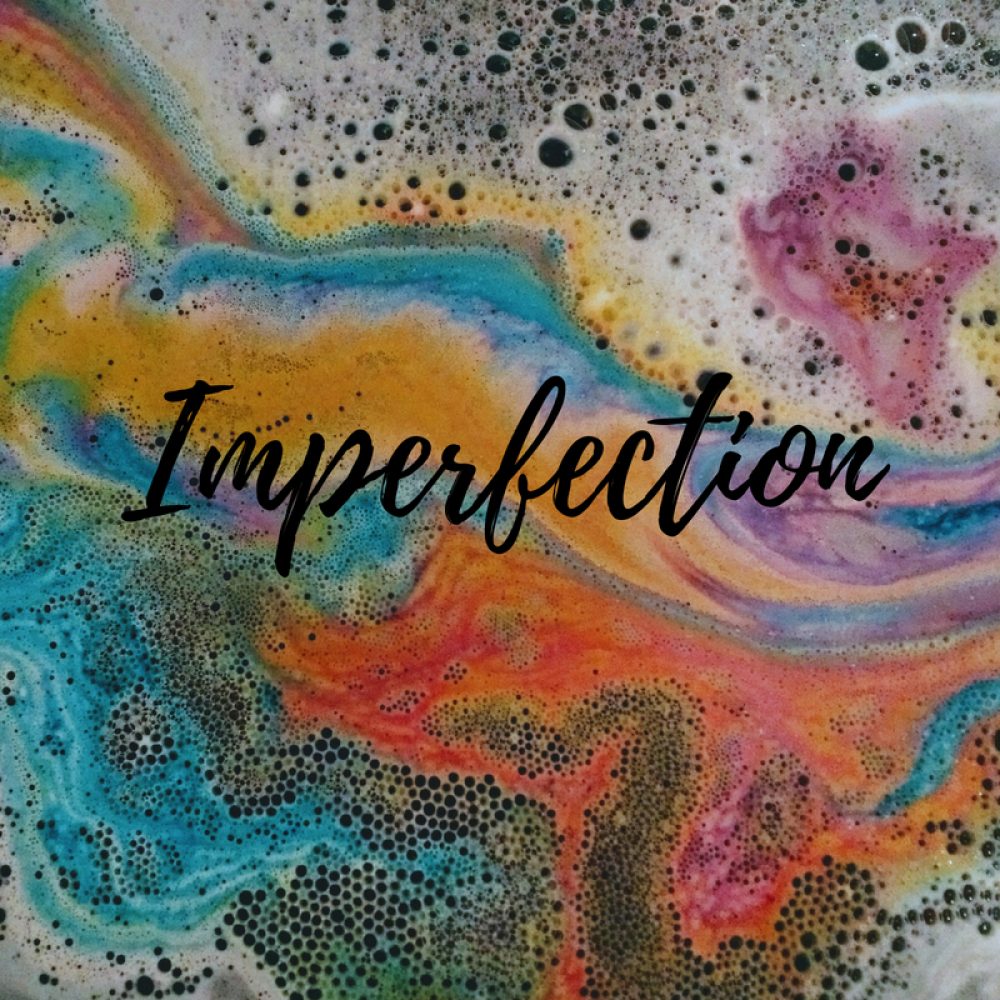
This incredibly honest and powerful blog post was written by the fabulous Miriam! Miriam co-runs an Instagram account called @themiddle_path, where you can read this and other blog posts about recovering from eating disorders, mental health awareness and body positivity. Thanks Miriam!
_____________________________________________________________________
![]() ‼️TW: Post mentions scars from self-harm
‼️TW: Post mentions scars from self-harm![]() ‼️
‼️
•
A few weeks ago a number of professional photos were taken of a very special day. The photos were beautifully done and the end result was incredible. However, looking through them something didn’t quite add up. It took a while to realise what it was but having scanned a number of pictures it was clear; my arms were smooth!
•
As a teenager self harm became a personal way of dealing with intense emotions & it has been a journey ever since. A journey where I am learning to treat my body with more care & less harm, but also a journey of learning to love what others may see as flaws/imperfections/areas that need to be improved or changed.
•
Megan Crabbe’s book(@bodyposipanda) has taught me so many lessons on loving your body & learning to not see any difference in your appearance as an imperfection. This book propelled me forward in learning to love my scars, to not hide them or feel ashamed of them. They all tell a story & the opinion of others should have no impact on the way I live my life or treat myself.
•
Having learnt to accept my scars which![]() 💥NEWSFLASH
💥NEWSFLASH![]() 💥were never an issue to begin with & then seeing them photoshopped out, hit a nerve with me & left me with lots of questions.
💥were never an issue to begin with & then seeing them photoshopped out, hit a nerve with me & left me with lots of questions.![]() 📸Are they something I need to feel ashamed of?
📸Are they something I need to feel ashamed of?![]() 📸Are they flaws?
📸Are they flaws?![]() 📸I know the journey I was on felt right but maybe they do need to be hidden.
📸I know the journey I was on felt right but maybe they do need to be hidden.
•
After some time to process & thankfully having the ability & time to talk this through with my husband, friends & therapy team I found my conclusion...
•
THERE IS NOT A SINGLE THING WRONG WITH HAVING SCARS ![]() ✅
✅
•
THEY ARE NOT FLAWS![]() ❌
❌
•
THEY ARE NOT IMPERFECTIONS![]() ❌
❌
•
THEY DO NOT HAVE TO BE HIDDEN FROM THE WORLD![]() ❌
❌
•
NO ONE, NO PHOTO, ABSOLUTELY NOTHING SHOULD MAKE YOU EVER QUESTION THE BEAUTY & VALUE OF YOUR BODY EXACTLY AS IT IS.
•
Shake the shame from your skin. You’ve done nothing wrong.
•
My body does SO much for me & it doesn’t have to be hidden just in case it meets the critical eyes of someone else.
•
This photographer wouldn’t have wanted to cause a minor crisis. Let’s be aware that what we see as imperfections might be what someone loves about themselves. All that’s needed is more education ![]()
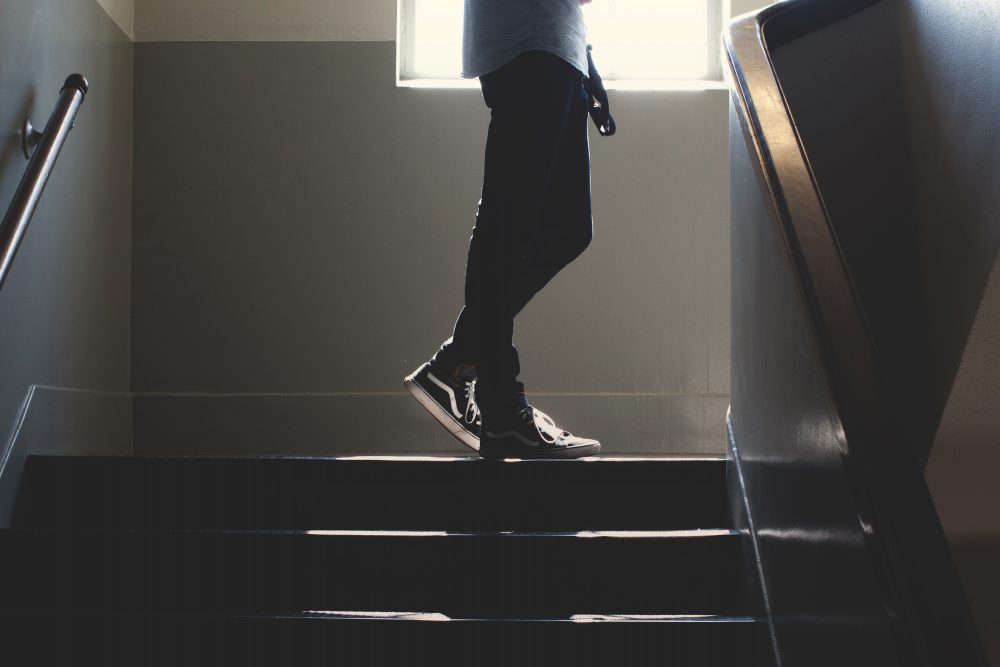
Here at SelfharmUK we want to help people understand their harming behaviour and explore other ways to cope with life's challenges.
If you get in touch we'll listen to your story and suggest ways to help you move forward ... but somewhere along the line we'll almost always suggest you visit your GP. This can be a really tough thing to do, we know it can be scary, and can mean having to tell your parents too (though not always) but we believe it can be a significant step towards feeling better.
We asked GP David Roberts what you can expect when talking to your doctor about self-harm and whilst this article is only a guide - and not a definitive set of facts - we hope it will help you feel more in control, if and when, you walk into that consulting room...
Why do I have to go to the Doctor?
Self-harming is usually an indication that all is not right. People sometimes do it because it relieves internal tension and stress. It is not a very good way of doing this and like drugs, alcohol and smoking ultimately doesn't do any good. But in the short term it gives a temporary relief from emotional pain. However, it can be a symptom of a more serious mental illness and so your doctor can make sure you get the help you need.
Can I go on my own or do I have to take a parent?
You can legally go to the GP alone aged 16, but doctors can accept that you may be able to make your own decisions about your health (eg contraception) from 14 if they think you understand things and are mature enough to do so. A doctor would want you to involve your parent(s) in your care until you are 16 and are likely to encourage you. They would not give you an injection or carry out an operation, or even do an intimate (embarrassing) examination (physical check) without your parent's permission before you are 16.
How can I get ready for my appointment?
Even if you are under 16 That does not mean that you cannot talk to them about your problems or issues. It is a good idea to think about what you want to say and write the main points down. Lots of people get embarrassed at what they want to say and so don't get to the point. Doctors are busy and don't get embarrassed by what you think or say, so it is better to take a deep breath and say it right at the beginning rather than put it off. They won't mind and it will give them more time to talk to you than if you spend the first five minutes talking about a rash that no one can see because it really isn't there! Think about what you want to get out of the appointment - do you just want to tell someone and get it off your chest, do you want help stopping it, do you want them to refer you on to someone who could give you specialist help? If you tell them what you want then they can work out how best to support you.
What will happen if I say I self harm?
Self harming is quite common and they will have seen other people who do it. So they won't be shocked, but they will be concerned. The biggest concern they would have is that you might want to kill yourself. Not many people who self harm want to do this but doctors have a professional duty to assess the risk of that happening. they are obliged to keep what you say confidential and private between you and them, unless you tell them something that they think might indicate that your health is seriously at risk (or you might be planning to do something that might endanger someone else) - see later - in which case they may be obliged to break your confidence. They should tell you this. They will want to help you, and so if you have plucked up courage to tell them, they will try to find ways to do that.
What will they ask me?
This might include asking some deep questions which you might find embarrassing: don't be though, they're only trying to work out what's making you do this. They'll ask about cutting, taking drugs, overdoses, and other ways you might be tempted to hurt yourself. They may ask you about how you feel (low, depressed, crying, worried, frightened, angry) and how things are at home or school or work. If they feel you trust them they might ask you to come back again to see them, and they might suggest that they refer you on to see a specialist from the CAMH service (people who work most of their time with young people with similar problems). They might encourage you to speak to a counsellor at school, particularly if there is someone there you feel you can talk to. They will want to know why you have come to see them at that time and to find out what help you want them to give you. You may not be able to say this, but if you've thought about it beforehand it will help.
Do they have to tell my parents?
They are obliged in law to protect you and others from actions you might take that might harm you or others. But they need to check how likely your might be to do something you say you want to do so they will question you quite hard. If you are under 16 and they think you are suicidal (or planning a murder!) they will have to tell your parents or other authorities. They will still encourage you to involve your parents as they have legal responsibility for you, but if the risk is low in their view, they will try their best to keep what you say confidential.
Will I have to show them where I have self-harmed?
They can't and won't force you (unless they are seriously worried about you being in danger and even then they will ask for advice from someone who specialises in child protection). They will want to assess how bad your injuries are - you might need antibiotics if your cuts are infected, and you might need dressings to protect the wounds.
Remember they aren't easily shocked or embarrassed and really want to help you - showing them the extent of your cutting will help them work out how serious the problem is and how to get you the best help.
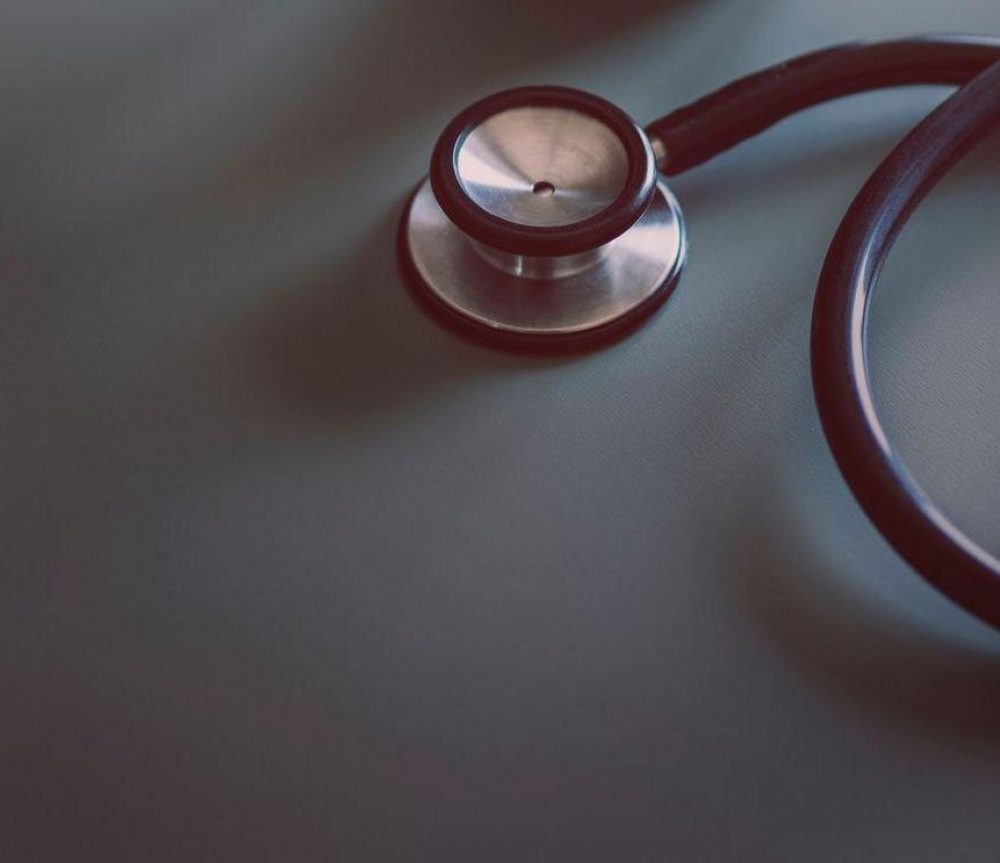

Please be mindful that this post has a Trigger Warning ‼️
My best friend Regan tells me what she does to herself in a quiet voice. We’re sitting in the back of Geography class, and nobody’s listening to us because everyone messes around in Geography. She’s leaning in like we have a secret between us, and she rolls up her sleeve and shows me her forearm. It’s covered in thin red lines, which are too straight to have been done by a cat or a bush or by accident. I’ve never seen anything like it before, and I don’t know what to say.
“It helps,” Regan says.
Because I don’t want her to regret telling me, and because she’s my best friend, I say, “If it helps, then I guess that’s okay.” But I don’t think it’s okay. I’m worried about her, but I don’t know how to tell her that without sounding judgemental. If this is how she copes, then it’s okay, right? Everyone knows that other girls in my year are self-harming.
I keep looking at the cuts on her arm, and she pulls down her sleeve again to cover them up. She’s not wearing bandages, so her scratchy jumper must be rubbing against them. I’ve been cut before, and I know how it itches and stings when it’s healing.
“You won’t tell anyone, will you?” she asks. “It’s not so bad, and I don’t want them to make me see the counsellor.”
I want to tell her that I can’t keep this to myself. I have to tell someone, because this is serious, and the counsellor will be able to help her talk about this. I don’t want to be a snitch, but she’s my friend, and I care about her. But I’m her best friend, so maybe I can help her better than a counsellor? And if I tell on her, then she won’t trust me again. I have to keep this a secret, even though I don’t really want to.
“Of course I won’t tell anyone,” I say.
Regan smiles. “Thanks,” she replies. “You’re the best.”
***
A week later, we have P.E. and Regan stands with me in our corner, still wearing her long-sleeved jumper. I realise that she doesn’t want to get changed, in case someone sees her arms, and I quickly stand in front of her, blocking her from everyone’s view. It’s not fair that she can’t get changed in case someone sees her cuts, and I don’t want her to get in trouble because she’s not changed in time.
“Thanks,” she whispers, and then she takes a rugby jumper out of her bag, even though it’s summer, and we’re supposed to be wearing short sleeved shirts. I don’t say anything, but I know people will notice that she’s wearing it. I hope the teacher notices, and realises why, and tells the nurse, so that someone else can do something about this, and I don’t have to be the only one who knows.
I stand and wait for her to get into her kit, blocking her from everyone’s line of sight. We don’t say anything, and then, when she’s done, we head for the exit together. We’re the last ones there, so I can talk about it.
“Aren’t you going to put bandages on them?” I ask. I saw her arms when she pulled her jumper off, and they were still uncovered. There were small red smears where the material of her clothes rubbed against them, and streaked down her arms.
“I don’t need to,” she replies bluntly. “Look, I don’t want to talk about this right now, okay? Someone might hear.”
So, I don’t say anything else. I don’t want to upset her, or have an argument about this. We walk out onto the playground, and a few other girls look at Regan, with her thick, long-sleeved, rugby shirt. Nobody asks why she’s wearing it.
***
Regan keeps scratching her arms under her jumper. I want to tell her to stop, because it can’t be good for her, but I don’t want to seem pushy.
She keeps itching, and eventually I can’t ignore it anymore, so I say, “You shouldn’t do that.” That’s all I seem to do these days – tell her what she should and shouldn’t do, ask her questions, bug her. I'm like a broken record. But if I don’t tell her, then who will? I’m the only person who knows. But I’m worried, because she’s obviously getting annoyed by my nagging.
“It itches,” she says sharply.
“Haven’t you put anything on it?” I ask, but I don’t know what to put on cuts. I use Bio Oil for spots. Maybe that would help? But, before I can suggest it, Regan says, “I wish you’d stop going on about it. It’s fine.”
“It’s just – if you’re going to do it, you should take care of it,” I say. I just don’t like the idea of those injuries going unchecked. But it comes out wrong, so it sounds like I’m lecturing her again.
Regan folds her arms. “God, I wish I’d never told you.”
I don’t know how to respond to that. After a moment, I say, “It’s just a lot to handle. I want to help, but I think you should tell someone.” I know how it sounds, but it’s true.
She glares at me, and it looks like she’s going to say something else, but she doesn’t. She just walks away.
***
Four days later, in first period, my phone buzzes with a text alert. I look at it under the desk, and it’s from Regan – I need to talk to you @ lunch.
So, at lunchtime, I wait in the form room, in our usual spot. We haven’t spoken since our fight, and I’ve missed her. She walks in and sits next to me.
“I got them bandaged,” she says. There’s no need for her to say what she means. I know. I don’t say anything else, hoping she’ll continue. And she does. “I thought about what you said, and you’re right. You shouldn’t have to handle this by yourself. It’s a lot. I know you care about me.”
“Yeah, I do,” I reply, a little awkwardly. This whole thing is pretty awkward, and she looks embarrassed too.
“I just thought that, if you were really my friend, you wouldn’t want me to go to someone. But I can’t tell you everything.”
I’m so relieved – for her and myself – that I can’t help but smile. “It’s not that I don’t want to hear what’s going on with you –” I say, at exactly the same time as she says, “I don’t wanna be a burden –”
We both laugh, because we talked over each other, and she smiles at me. “Thanks for helping me with this,” she says.
“It’s okay,” I reply. “You can tell me stuff, okay? It’s not that I don’t want to hear what’s going on with you. But I have to know you’re getting support from somewhere else too.”
“Yeah,” she agrees. “I get it.” And then, after a few seconds, she pulls me into an unexpected hug, and I feel the bandages underneath her jumper. It’s a small sign that she’s taking steps in a positive direction, that she’s trying to help herself. It’s all I need, and I hug her back, tightly. “You’re a good friend,” she says.
This short story was written for SHAD2018 by Sophie, a Graduate Volunteer at Youthscape working alongside the SelfharmUK team.
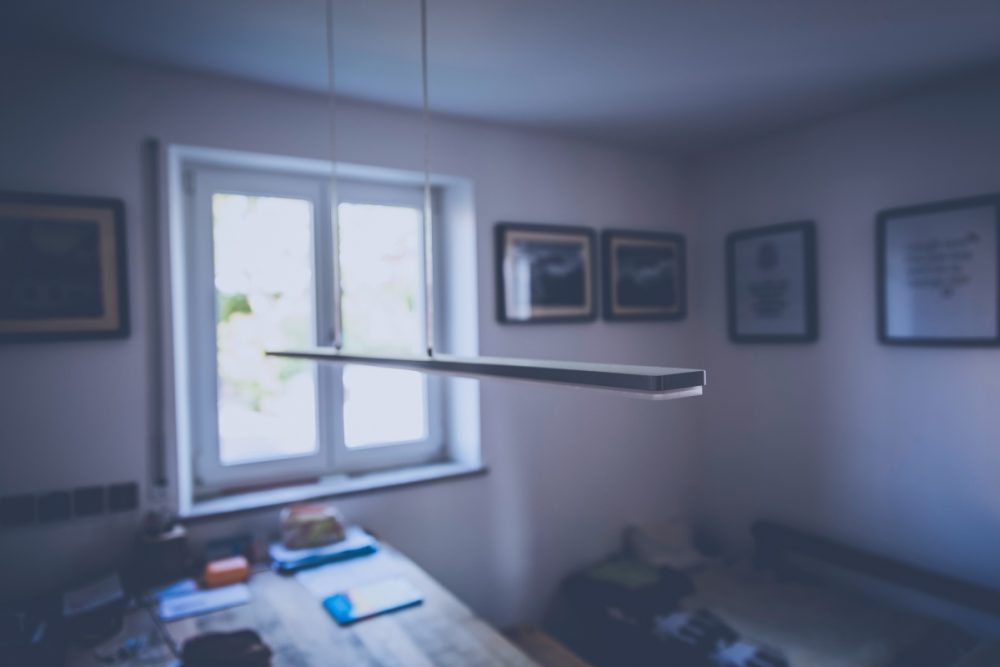
Yeah, I know, some people love it and some hate it! Hollyoaks is the marmite of soap operas :0
It is the only soap we watch in my house of 2 teenagers. Why? Because we love the fact that it represents gay people, straight people, mental health issues and race issues far more than anything else on TV (unproportionally so, I know!).
There’s a story line at the moment about Lily Drinkwell (yep, that is her name!) who has begun self-harming after numerous issues in her life: mum dying, boyfriend issues, rejection and body image. It shows the complexity of the emotions: it isn’t ever juts one thing that leads a person to begin to self-harm: it is many, many things that have all layered upon each other to create a set of complex emotions that a person feels are out of control.
Lily impulsively self-harmed the first time: it wasn’t planned, she hadn’t expected to do it. In our experience at SelfharmUK, this is often the way: the first time isn’t thought through but is reaction to huge feelings of strong emotions. Lily then feels guilty and ashamed afterwards: her aunt notices blood on the towel and insists she gets medical attention. This, is where soap opera land differs from real life: for many young people, their self-harm isn’t noticed for some time. It then becomes a coping strategy to deal with those emotions that aren’t going away, but are, in fact, becoming more layered, due to the guilt of self-harming and fear of being ‘found out’.
If this is you, if you are in this cycle, whether it’s been a one off self-harm, or whether you feel you are stuck in this never ending cycle of harming; feeling bad; feeling guilty; harming to release the feelings…; we want to support you.
At SelfharmUK we are pretty unshockable, we don’t judge you, we don’t tell anyone (unless we urgently need to for safety). We aren’t about how TV portrays self-harm; we are about the reality of it: the long haul, no quick fixes, giving you information on looking after yourself and your injuries, ideas about pulling apart those emotions positively with trained people: we are about what you are about.
We listen; we chat; we offer help; we offer ideas of new ways; we help you consider what’s going on in those layers of emotions so that you can, when you want to, find a new way of coping with those strong, real and confusing feelings.
We run a safe place online, called Alumina, where trained people can support you.

The road to ‘recovery’ from self-harm can be full of twists and turns: you may feel that you are ready and want to look for alternative coping strategies – here are some things to consider:
Deciding to stop, or reduce your self-harming behaviour is a huge step forward: it shows a mindset desperately wanting to find a ‘new way’. Go gently on yourself.
Many people talk about reducing gradually before deciding to finally stop. This may be helpful for you or you may decide you need to separate yourself from it immediately. Either way is fine – don’t put too much pressure on yourself though.
Take a day at a time, or even half a day. This is will depend on what your pattern of harming is, the frequency of it, how long you have been engaged in it and what are the external things that might be causing you stress. Perhaps set yourself a timer, and add an hour/half day/day to it each time?
Plan when and how to reduce or stop. Think about what else is going on for you currently -how are you coping with school, exams, family stuff, friendship issues? If you have any major stress factors (like exams), consider waiting until they have been as resolved as they can be, before reducing or stopping. This way, if you are struggling, you won’t be putting yourself under impossible pressure.
Recognise it may take a while. Whatever form of harming behavior you have been using to cope, it will be an addiction and a habit. Retraining your brain to find a new way of coping will take time – allow yourself time to experiment with different coping strategies to find what works for you.
At the start, it’s important we are honest with you: none of the coping strategies will give you the same relief you have found in your harming. Wearing elastic bands, using ice cubes or exercise are alternatives; your brain will take a bit of time to rewire itself to recognize this as the new way of coping. The physical and emotional relief you might get from your harming, may not be fully relieved immediately by using alternatives.
The most important thing is, however long it takes; even if it’s two steps forward and one back; you move forward at your pace. Don’t go too hard on yourself. Be as kind to you, as you are to your friends.
Always show yourself love, patience and kindness.
We have list of tried and tested alternative strategies, but please, let us know others as the longer the list, the more we can all offer other young people who are seeking to looking for a new coping strategy.
We are with you in this, you aren’t alone. Literally thousands of others are with you in this journey through self-harm to recovery; let’s take small steps forward together.

Everyone seems to like the summer – long hot days, sitting in the park and eating ice cream…well, maybe not everyone.
If you have scars, recent or older, from self-harm, you will probably be feeling very self conscious – and also blooming hot! Here at SelfharmUK, we know that the whole issue of covering scars is very complex.
The questions around it are often based on whether anyone knows – what would they do if they noticed it; what would they say? Will people judge me? Will they make fun of me?
Schools and colleges often ask students with scarring to cover up – with the notion that it may entice others to self-harm by cutting, or because it draws attention to scars. If that’s your school’s policy, then I guess you need to stick to it. However, maybe, if you feel able to either write or talk to the school about it, it may challenge them to consider why they have this policy and open up the conversation about how the school deals with it.
You see, the longer we cover up, the more we feel we are in the ‘wrong’ and it’s a bad secret to have: self-harm isn’t a ‘bad secret’, it’s a way of coping for a time until we feel able to manage our emotions in a way we feel ready to.
If you choose to cover your scars, there’s nothing wrong with it.
If you choose not to cover your scars, there’s nothing wrong with it.
It’s personal preference and will depend on how you feel that day, who you are with, where you are going, if you feel able to deal with anyone who might ask …. Some people are happy to explain their scars, others make up a white lie, others ignore the question and move on….however you choose to you respond, ensure you are in control of it – they are your scars, part of your story, for you to choose whether or not to share.
You can visit our Dealing with Scars page to find out more information, advice and links to other organisations who might be able to help.

It sounds like you are worried about your friend, and it’s great to hear you want to support them. Self-harming can be risky and it is understandable that you are concerned.
Firstly, it is important to remember the following things;
- you are not responsible for your friend’s actions.
- you cannot make them stop self-harming if they are not ready to.
- there is no quick fix or magic formula that works for everybody.
But here’s what you can do.
Friendship can be a powerful thing, and just being there for your friend may be a great comfort to them – to know they are not alone.
This doesn’t mean you should feel a pressure to be able to be around for your friend at all hours. Helping them create a bigger support network may be of great benefit to you both. Maybe you could tell them about this website or the young minds website. They could contact Childline and chat to a counsellor in confidence at any time of day or night, (for children and young people up to the age of 19). Or perhaps you could find out who else they trust that they could talk to.
People try all sorts of different ways to cope with their feelings – and different things work for different people. Some people keep a diary, others like to read or listen to music. Some people find it helpful to stimulate their senses – so they might put on their favourite perfume or aftershave for the nice smell, eat their favourite snack for the taste, cuddle their pillow or pet for the soft touch and so on. Maybe you could think about telling your friend about this.
Perhaps your friend might find it helpful to have a think about the things that trigger their self-harm. Perhaps they need support more so for the trigger than the self-harm itself. For example, if bullying is triggering their self-harm, perhaps reporting this will help take the trigger away. Or if exam stress is the trigger, maybe asking a teacher to help with a revision timetable will help.
Many people who self-harm and try to stop, feel like they’ve failed if they do hurt themselves again. Reassure your friend that it is normal to find stopping self-harming difficult, and that every urge they do manage to conquer is a victory.
Just by reading this article shows you are an amazing friend and doing a great job. It is a real balancing act to support a friend and look after your own feelings at the same time. It is a good idea to make sure you have support too, whether that be from another friend, an adult you trust or from a reliable website like this one, young minds or Childline.
By Sam Firth who works for Childline
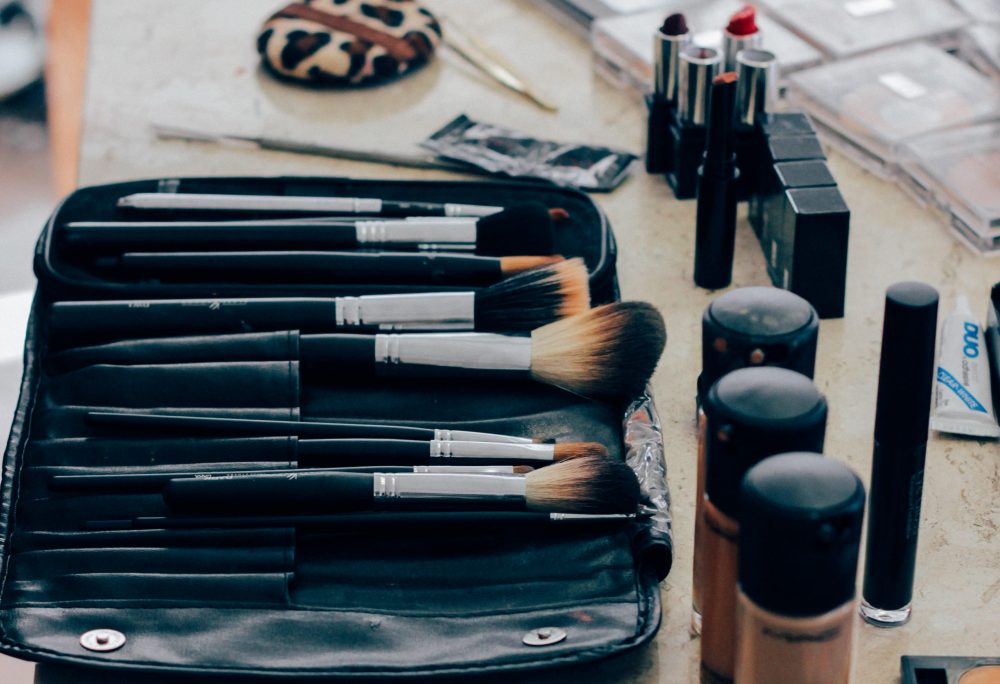
Sometimes things will catch your eye on social media and get you hooked for hours looking at posts, responses to posts and re-tweets. This happened for me a couple of weeks ago. Urban Decay pushed out some new make-up and did the usual swatching of said make-up on a models arm. The particular imagery used by the big make-up brand caused some controversy amongst people on social media. The company took a huge backlash from people all over the globe stating that it was distasteful and difficult for people to look at who were struggling with or who had struggled with self-harm. It didn’t help that the product was called ‘Razor Sharp’ and so the image teamed with the words, really did put Urban Decay in a sticky situation. If you haven't see the picture and feel strong and able enough to look at it, it can be found here **trigger warning** only look if you can.
This got us thinking at SelfharmUK about the use of images in general, but also the lack of thought that is still given to self-harm in the world of branding and marketing. It is a clear sign that self-harm does not appear on people’s radar and is still something that is missed. Lots of people took to twitter and told Urban Decay in no uncertain terms that for them, this had felt triggering and upsetting.
I really thought we were getting somewhere with understanding that names and pictures have an effect on people and if we are going to brand something we have to ensure we think this through. Don’t get me wrong, I LOVE make-up and I understand that the arm is where swatching is done, but the thin lines, the name of the brand and the lack of sensitivity towards people is quite frankly upsetting. Urban Decay have remained ignorant to both current and past self-harmers and have to this point not given a clear and appropriate apology.
We need to be challenging brands, marketing moguls, products and anyone with influence that people are sore and people are hurting. We need to make people aware that self-harm affects a lot of people and the things we say, do, post and write about can cause people distress and discomfort.
I contacted Urban Decay for a comment to this post I said this;
Hi I am the project manager of a charity called SelfharmUK and am emailing to see if someone will give me a response to the recent image and eyeliner name that caused an outcry on twitter. I am in the process of writing a piece for our website and think it would be right if I included a comment, apology or response from yourselves. The image and the name of the product have left current and ex self-harmers feeling upset by the post and as of yet I am unaware if you have issued an apology. I would be interested in talking to you about this more and looking forward to hearing from you. Thanks
I am yet to have a response, but be sure to know this. As a charity we will never stop calling people to account on things that are triggering for people, that cause them distress around self-harm and we will continue to be an advocate for any issues on this topic.

Laura Haddow, Training and Marketing Manger for SelfharmUK, talks openly and honestly about how she supported her ex-partner with self-harm. She talks frankly about how lonely this can feel and ends with some encouraging words for all who may be supporting a loved one with self-harm.
We first met at a festival.
It was July and I was a blue haired 16-year-old girl who sat down next to a long haired (hot) musician guy in a field and unexpectedly became swept up in a summer romance that lasted the next 5 years.
He was the singer/songwriter in a band and so insanely talented. Watching him perform on stage night after night you just couldn’t take your eyes off him, so full of energy and passion in being in the spotlight and doing what he loved.
Life moved fast and before we knew it we had moved in together and got engaged, I was smitten.
I’d never really come across self-harm before so when it first happened I didn’t really know what to feel other than panic.
Things would suddenly just overwhelm him and this wonderful outwardly happy guy would spiral fast into a very dark place where even I wasn’t allowed in to help.
I didn’t talk to anyone for years about it. It got worse and worse, the anger, the harming, I felt alone and helpless. How do you stop someone you love from hurting themselves? Was it my fault? Why was it getting worse?
I look back at myself then and wish I knew what I know now, I wish the world was as ready and open to talk about self-harm and mental health back then as it is now but it wasn’t, and whatever avenue I took for help ended in a full stop.
Maybe you relate to this? Maybe you’re watching someone you love battling with self-harm and are at a crossroads unsure of what to do or where to go for help. Here’s a few pointers that I hope will help:
You are not alone and you are not to blame I repeat, you are not alone and are not to blame.
You also urgently need support and you mustn’t keep handling this alone without help, it’s too hard and will start having an impact on you- find someone you trust and tell them what is going on.
Talk to your GP for advice
Get resourced with some good information around the subject and ways to support a loved one. SelfharmUK has lots of helpful information pages plus some great resources on the store especially the Parents Guide and book- Self-harm; the path to recovery).
Look after yourself as well as your loved one, it can be incredibly draining supporting someone around this issue so make sure you are taking care of your health too, talk, rest, eat well and ask for extra help when you feel you need it.

Self-harm is no laughing matter and having the courage to share your story or admit you need help to family or close friends is difficult for anyone to do … whatever your ethnicity or cultural background.
But from my experience, within the Afro-Caribbean community there is this belief that self-harming, mental health problems and depression are not a ‘black thing’. Many people in our community believe that only Caucasian people suffer with depression or mental illnesses and it’s this sort of mentality that leads to young black people failing to seek the help and advice they need.
According to The British Journal of Psychiatry black girls are surprisingly more likely to self-harm than white girls, but less likely to receive any type of treatment. Yes you read that right! With shocking facts such as that, it seems bizarre to me that I couldn’t find at least one online platform that offers support to black girls who self-harm.
Now of course, there are many platforms that offer young people support and guidance that black girls can turn to. But they don’t seem to feature how much of a big deal it is for black girls to tell their close family or friends about their problems and try to seek help.
When I was sixteen I use to self-harm, it was brought on by various things that were going on in my life from family issues to my deeply rooted insecurities. I never sought help, firstly because I was scared and because I was always being told that things like depression and mental illness was associated with white people. Eventually my mum saw the scars on my arms and we had a long discussion about depression and how I could actively seek help.
A few years later and my life couldn’t be better! But sometimes I do think about that little insecure black girl who self-harms because she is bullied at school, abused at home or dealing with family problems, who is telling her that it is okay to admit she needs help? Who is helping?
YES some black girls - and boys - do self-harm and it’s the cultural stigma that is deterring them from seeking help. Please if you are reading this and you are scared to admit you self-harm due to cultural shaming or embarrassment, understand that your family and friends do love you and there are people out there who will take time to listen and help you take the first step towards recovery. Post to our Question page or visit the Information page to get all you need to know, or maybe check out Alumina - our online course that give you the tools to move towards recovery.
Lateefah Jean-Baptiste is a 22 year old media researcher and writer from London. I like to write pieces that can encourage, help and inspire others like me. I am my happiest when I am around loved ones and as we're talking about what frustrates us this month, for me it's people who are unnecessarily rude and angry.
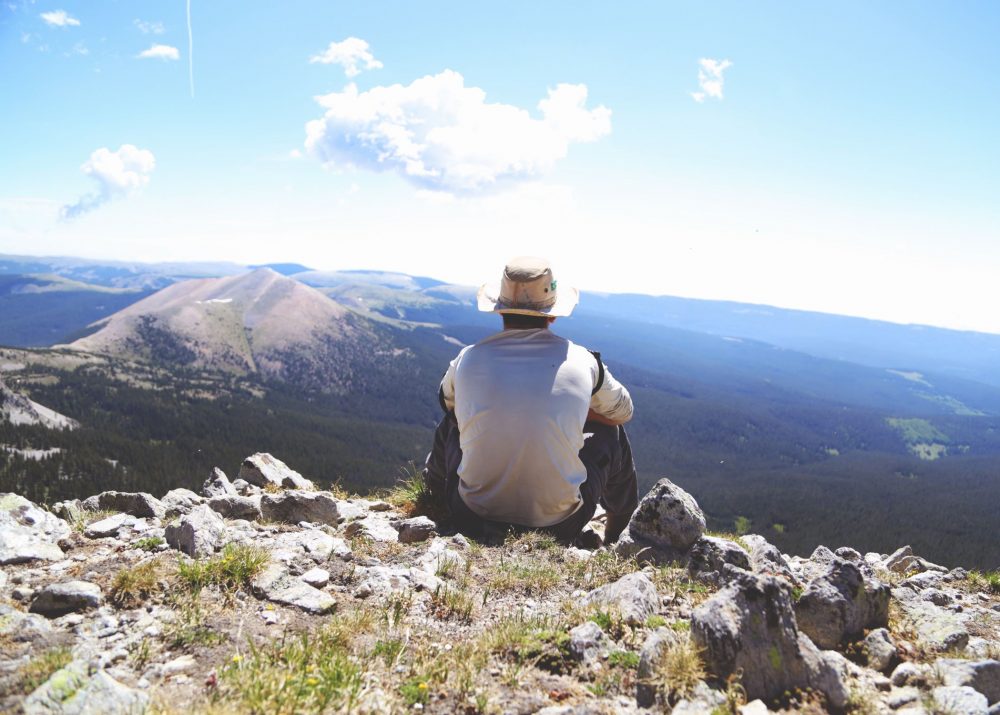
Whether you’re currently in the midst of struggling with self harm, giving up, or have stopped for years, scars can be a difficult part of self harm to deal with. I’d say I’ve pretty much accepted my scars now, yet sat on a coach writing this, bare arms, I still find myself automatically trying to cover up as someone walks past my seat.
When you were younger, did you love to show your grazes and cuts to others when you were injured from maybe climbing a tree, or doing something adventurous? Feeling proud and wanting to tell everyone how you got that injury, and even once it had healed, still showing off your scars, no matter how big or small it was?
As we grow up, this can still be the case, but scars from self harm can leave us feeling ashamed, disgusted or angry at ourselves, and are certainly something we wouldn’t point out to everyone. We even go that bit further and make the effort to actively hide them - to avoid exposing our secret, avoid the stares or questions, avoid being made to feel uncomfortable.
I really like the theme this month – Survival Scars. It makes you look at scars in a different way. They make me think of coming out of a battle, like warriors with scars, reminding us that we fought and survived. I’ve found that the way we view scars makes a huge difference when coping with them.
Being able to cope with your scars doesn’t necessarily mean showing them off. Scars are there whether we hide them or not. I think coping with scars, for me, is about acceptance. The more we accept our scars, the easier we will find it to cope with them.
A few important things to remember:
> Scars may not be as obvious as we think they are to other people. Because we know they’re there it means we’re naturally going to be more aware of them.
> One day your scars could give you the opportunity to help someone else on their journey.
> They show that through deep emotional pain, you strove to survive – so if people stare or make comments about them, don’t be ashamed, they don’t know your story and how far you’ve come.
> If you have worries about later on in life, about how you’ll deal with your scars in marriage/if you have children etc. Don’t worry about that right now, you don’t know how far you will have come by then, and it may not be a worry at all when you reach that point
Accepting your scars is a process, it may be difficult at first, but just as wounds take time to heal, so does how you view your scars. Each person is different so what could take months for one person could take years for someone else, and that’s totally okay.
Your scars are a sign of survival and healing, and you shouldn’t be ashamed of that. You made it out of battle, and that is awesome.
For years I was known by certain staff members in school for my use of self-harm. It was the way I felt able to survive in a world that seemed to be falling apart around me. I knew it wasn’t the best way of coping, but I needed it at the time; I needed it to show me an outward sign of my inward suffering. Over time I managed to build up some trusting relationships within school staff who knew I self-harmed but remained respectful, avoiding forcing me to show them or talking about it. This understanding and respect was important for me in order to allow me to begin the process of recovery from self-harm.
After one particularly bad night, I attended school afraid that I may need some extra support with cleaning and caring for my self-harm. I was a part of a support community on a social media site so I asked around for advice when bringing it to the attention of school staff. I was met by negativity due to past experiences of others. Some were rushed to A&E by panicked teachers, others had been told to sort it out for themselves as they were self-inflicted, and others were taken from their classes and away from their classmates to a seclusion room. Fearful that I may be met with a similar negative response I approached the school chaplain who gave me time and space to open up about what had happened that particular night. She was calm and empathetic and this made me feel comfortable and confident in my sharing. The chaplain spoke to me about what I needed to do to keep the wounds clean rather than forcing me to show her so that she could deal with the wound; this made me feel empowered and responsible to take care and take control.
Because of the positive response I received in seeking help, I felt more able to open up and receive the support I desperately needed at times. I felt confident in knowing I wasn’t going to be secluded for a behaviour I felt I needed temporarily to help me, and I knew I would be listened to and met with support when I sought it.
It’s completely okay to feel afraid about opening up to someone about your self-harm. Talking for the first time or the 100th time can be daunting as self-harm is very personal and there are a lot of emotions attached to it. Although there are people who do respond in the wrong ways to people who do self-harm, there are others who really do want to help you and want the best for you. So, I encourage you just to try building a relationship with someone you feel able to. Over time open up and, when you’re ready, seek the support you need because you really do not have to face anything in this world alone.
Miriam Jarvis is a student Mental Health Nurse studying in Plymouth, she is passionate about all things Mental Health, church and can usually be found with a cup of tea in hand! You can find some of her work raising awareness of mental illness dotted around the internet:
http://blurtitout.org/2013/12/24/depression-miriams-useless-guide/
